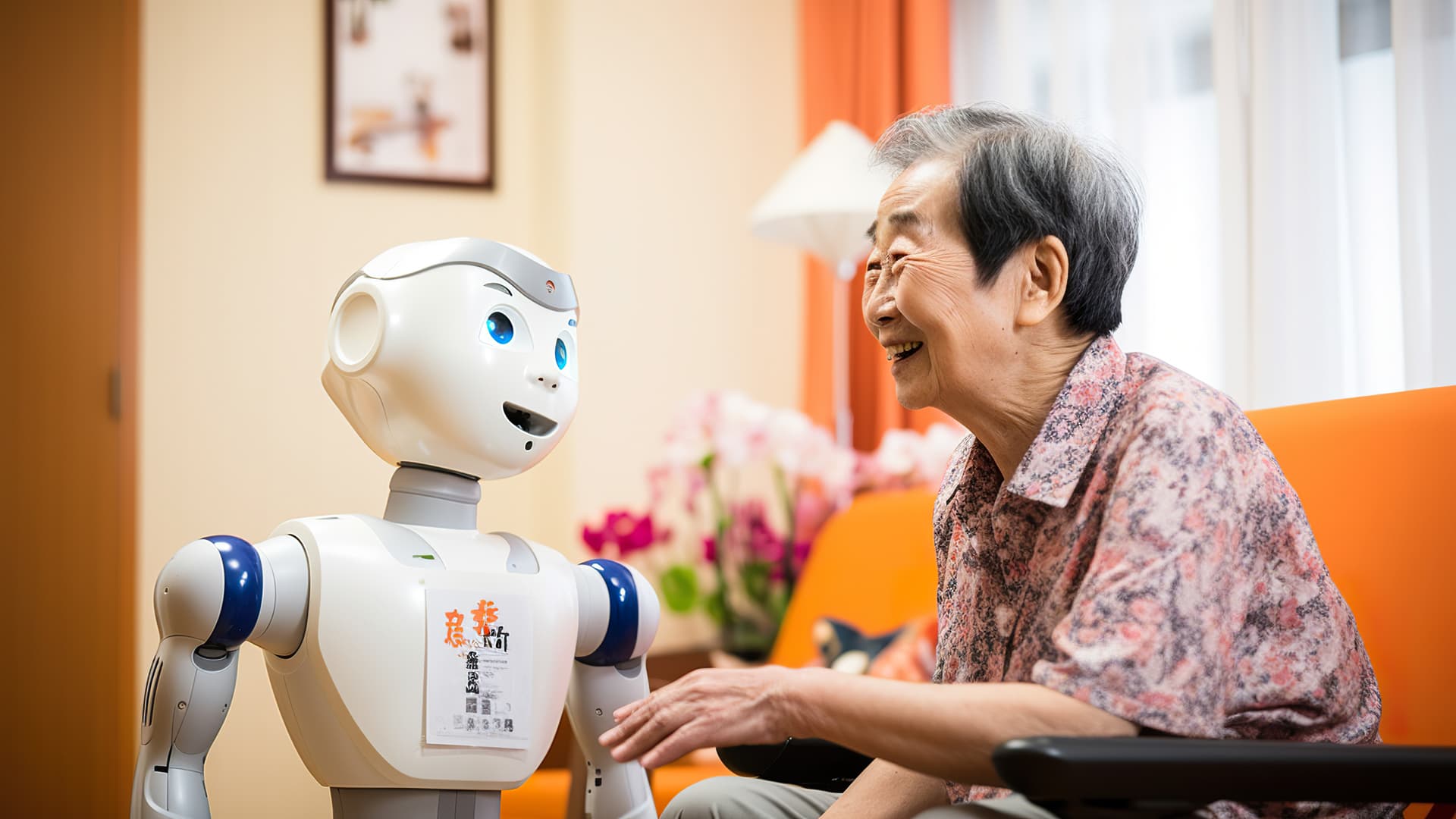Picture this: Grandma forgets her medication again, but instead of frantic searching, a gentle voice reminds her. Not just a disembodied alarm, but a friendly robot companion ensuring her wellbeing. This isn't sci-fi anymore – robots are venturing into the world of senior care, offering a blend of practicality, companionship, and even entertainment that holds immense potential for our aging population.

Robots are increasingly venturing into the exciting world of senior care, offering a fascinating blend of assistance, companionship, and even entertainment for older adults. From practical tasks like medication reminders and housekeeping to social interaction and cognitive stimulation, these technological companions hold immense potential to enrich the lives of our elders.
Imagine a world where robots
- Become gentle aides in daily life: No more missed medications or forgotten appointments. Imagine robots reminding individuals with gentle prompts and cues, fostering independence and reducing caregiver stress. Think smart medication dispensers, automated reminders, and even robotic helpers for tasks like meal preparation or light housekeeping.
- Combat loneliness and isolation: Loneliness is a common challenge for many seniors. Robots can offer engaging conversation, interactive games, and even personalized music therapy, bringing a touch of companionship and stimulating cognitive function. Think robots sharing stories, playing familiar games, or even reminding individuals to connect with loved ones.
- Promote physical and mental well-being: Robots can encourage healthy habits and provide gentle nudges for exercise, leading to improved physical and mental well-being. Imagine robots reminding individuals to take walks, offering guided exercises, or even engaging in stimulating cognitive games.
- Offer a sense of security and safety: Falls and accidents are major concerns for seniors. Robots can act as watchful companions, monitoring activity levels and sending alerts for potential emergencies, providing both individuals and their families with peace of mind. Think robots equipped with fall detection sensors, emergency call capabilities, and even smart home integration for added safety.
Hopeful Glimmer
- Independence and Dignity: Imagine robots reminding grandma to take her meds, not caregivers nagging. This empowers seniors, fostering a sense of control and independence.
- Social Connection and Combatting Loneliness: Robots can engage with seniors through stories, games, or simply conversation, offering much-needed companionship and combating the isolating grip of loneliness.
- Improved Physical and Mental Well-being: Gentle nudges from robots can encourage healthy habits like exercise and brain-training games, leading to improved physical and mental well-being.
- Enhanced Safety and Peace of Mind: Fall detection, emergency alerts, and smart home integration can provide seniors and their families with a sense of security and peace of mind.
Cautious Whispers
- Dehumanization and Replacing Human Connection: The fear of robots displacing the irreplaceable touch of human connection looms large. Robots should complement, not replace, the crucial role of caregivers and loved ones.
- Ethical Dilemmas and Data Privacy: Issues like data security, potential biases in AI algorithms, and the ethical implications of robot use need careful consideration and responsible development.
- Accessibility and Affordability: The risk of widening the digital divide is real. Robots should be readily available and affordable to ensure equitable access for all seniors, regardless of socioeconomic background.
- Overreliance and Loss of Autonomy: Too much robot dependence can hinder a senior's ability to perform routine tasks on their own. Striking a balance between assistance and autonomy is crucial.
But it's not all about robots replacing human connection
- Robots are tools, not replacements: Human interaction and emotional support remain paramount in senior care. Robots should complement, not replace, the crucial role of caregivers and loved ones.
- Ethical considerations are essential: Privacy, data security, and responsible development are key concerns that need to be addressed to ensure robot use aligns with ethical principles.
- Accessibility and affordability are crucial: Robots should be readily available and affordable to ensure equitable access for all seniors, regardless of socioeconomic background.
The future of robots in senior care is bright
- Rapid advancements in robotics and AI promise increasingly capable and user-friendly companions.
- Open-source platforms have the potential to tailor robot functionalities to specific needs and cultural contexts, ensuring inclusivity and accessibility.
- Ongoing research and collaboration between developers, caregivers, and families will be crucial to refine this technology responsibly and ensure it truly benefits our elders.
For more information contact us : support@mindnotix.com
Mindnotix Software Development Company


 AI-Taxi App
AI-Taxi App AI-Food App
AI-Food App AI-Property Mgmt App
AI-Property Mgmt App AI-CRM
AI-CRM AI-Fantasy App
AI-Fantasy App
 Web Development
Web Development App Development
App Development Business & Startup
Business & Startup Hire Developer
Hire Developer
 Digital Marketing
Digital Marketing Lead-generation
Lead-generation Creative Agency
Creative Agency Branding Agency
Branding Agency Augmented Reality
Augmented Reality Virtual Reality
Virtual Reality Internet of Things
Internet of Things Artificial Intelligence
Artificial Intelligence Blockchain
Blockchain Chatbot
Chatbot




